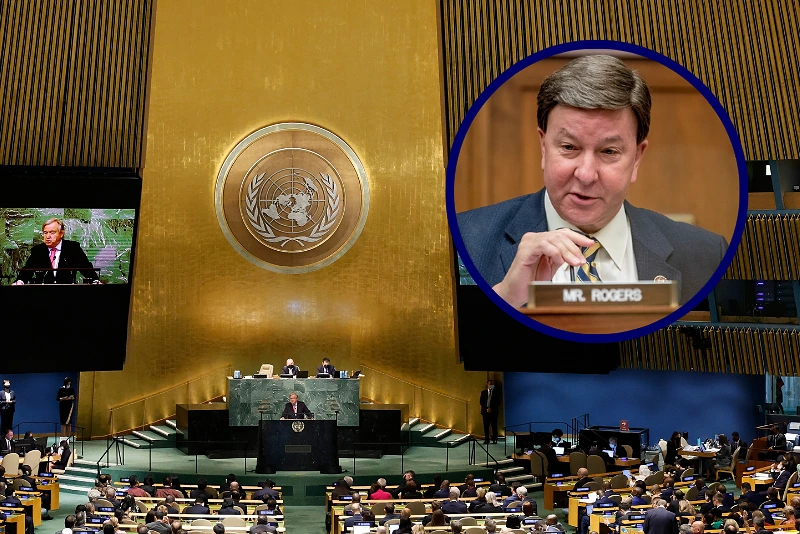

OAN’s Brooke Mallory
2:38 PM – Thursday, January 4, 2024
In arguments that claim the nitrogen gas execution of an Alabama prisoner is an “untested” technique that could expose the prisoner to torture or “cruel, inhuman, or degrading treatment,” United Nations officials are raising the alarm over the planned execution.
Advertisement
As part of the Human Rights Council’s special processes program, a panel of U.N. officials underlined in a report released on Wednesday that Kenneth Eugene Smith’s scheduled execution will be the first of its kind and could result in “grave suffering.”
About two months have passed since the Alabama Supreme Court ruled that the Yellowhammer State could execute a prisoner by means of nitrogen hypoxia. This kind of execution tactic would deprive the prisoner of oxygen, which is obviously necessary for maintaining body functioning. Nitrogen makes up 78% of the air that humans breathe.
“We are concerned that nitrogen hypoxia would result in a painful and humiliating death,” the experts wrote in a statement, adding experimental executions by gas asphyxiation — like nitrogen hypoxia — “will likely violate the prohibition on torture and other cruel, inhuman or degrading punishment.”
Smith’s execution is scheduled for January 25th, making Alabama the first state in the country to utilize nitrogen gas executions.
Smith was one of two men found guilty in 1988 of killing Elizabeth Sennett in Colbert County, Alabama, for hire.
The state attorney general’s appeal for Smith’s execution was met by an Alabama judgment last year.
U.S. Representative Mike Rogers (R-Ala.) also chimed in on the news by criticizing the U.N.’s “misplaced” efforts, saying, “China unjustly executes thousands per year, including nonviolent offenders, all while committing genocide,” Rogers wrote. ”So naturally, the UN Human Rights Council is focusing their efforts on stopping a humane method of execution on a convicted murderer in Alabama.”
Sennett’s family has endured “an unconscionable 35 years to see justice served,” according to the Alabama attorney general, who mentioned this in his appeal last year. Proponents of the nitrogen gas method have said that the execution is painless.
U.N. officials say that they had made a plea to federal authorities in the United States and Alabama to postpone Smith’s execution and any others that were planned until the execution process was more closely examined.
In 2022, Alabama had already stopped carrying out executions due to reports of the unsuccessful use of fatal injections.
Smith had contested the state’s choice to have him executed via lethal injection, and the U.S. Supreme Court ruled in favor of the state last year. However, the highest court decided not to revisit the decision of a lower court that upheld Smith’s right to die via fatal gas injection rather than injection.
Alabama had authorized the use of nitrogen gas at the time of the previous year’s decision, but the procedures for its use had not yet been established.
Stay informed! Receive breaking news blasts directly to your inbox for free. Subscribe here. https://www.oann.com/alerts






Be the first to comment